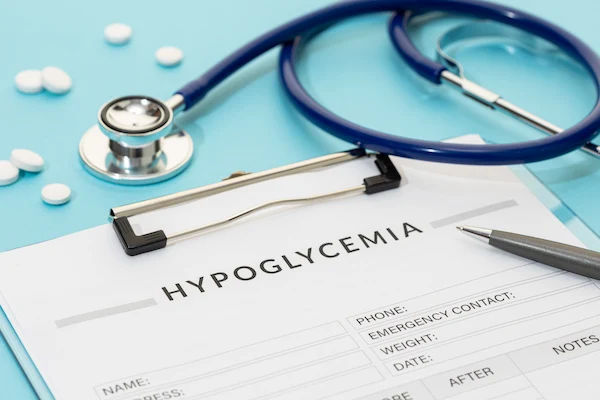Key Insights into Fructose Intolerance Management
Discover how a fructose intolerance test helps diagnose the inability to digest fructose effectively. Learn about fructose intolerance symptoms, testing methods, and treatment options for better digestive health.

Written by
Last updated on 13th Jan, 2026
Fructose intolerance, though not widely discussed, is a challenging condition that demands careful management for maintaining overall health and well-being. It extends beyond the inability to process sugar, requiring focused attention and thoughtful care to manage effectively.
This guide delves into the understanding, diagnosis, and management of fructose intolerance.
What is Fructose Intolerance?
It is a condition where the body can’t properly absorb or metabolise fructose, a naturally occurring sugar found in fruits, vegetables, honey and sweeteners. Unmanaged fructose intolerance can lead to severe health issues, including nutritional deficiencies and organ damage. Here are the two main types of fructose intolerance:
Dietary Fructose Intolerance: It occurs due to inadequate transporters in the small intestine. Thus, fructose cannot be absorbed effectively.
Hereditary Fructose Intolerance (HFI): It is a genetic disease due to a deficiency of aldolase B enzyme leading to excessive accumulation of fructose in the liver, kidneys and small intestine.
Hereditary fructose intolerance is a serious disorder that can be fatal if untreated. Fructose malabsorption is caused by fructose absorption failure that causes gastrointestinal symptoms.
Symptoms of Fructose Intolerance
The symptoms of fructose intolerance include:
Bloating
Diarrhea or loose stools
Abdominal pain and cramping
Excessive gas
Nausea
Fatigue
Irritability
Hypoglycemia (especially in HFI)
Headaches or migraines
Jaundice
Lethargy
Consult Top Doctors for Your Symptoms
Diagnosing Fructose Intolerance
Given below are pointers on how to diagnose fructose intolerance.
In the hydrogen breath test, a dose of fructose is given, and subsequent breath samples are taken every 15 minutes. The elevated hydrogen levels assist in the diagnosis of fructose as a possible trigger for gut symptoms of bloating and tummy pain.
A fructose elimination diet is one which eliminates fructose-rich foods from the diet and reintroduces them in small quantities under the supervision of a doctor in order to identify the triggers. People with hereditary fructose intolerance should avoid high-fructose foods and wait two or four weeks for gut healing.
Testing Hereditary Fructose Intolerance (HFI) via genetics determines if the ALDOB (Aldolase B) gene is ‘positive’. Hence, this is a recommended test in cases where HFI is suspected, as it is a safer procedure than invasive ones like liver biopsies and fructose tolerance tests.
Dietary Management
Dietary modifications are the cornerstone of dealing with fructose intolerance. Individuals must:
Cut back on high-fructose fruits like apples, mangoes, and cherries
Include low-fructose alternatives like berries, citrus fruits, and bananas in moderation
Decrease sweeteners, fructose-rich corn syrup, honey and agave nectar
Watch for sources of fructose in processed foods, beverages and condiments
Carefully check the first four ingredients of food labels
Nutritional Deficiencies and Supplements
Consuming less fructose may lead to potential deficiencies, such as:
Fibre from small amounts of fruit and veggie intake
Vitamin C, A, and folate
Potassium and magnesium as minerals
A 2022 study suggested that vitamin C and folate deficiencies can be seen in essential nutrients that may occur in HFI, where the level of vitamin C deficiency is 96.7% and the level of folate deficiency is 90%.
A person experiencing fructose intolerance may not have enough nutrition due to limited consumption of fruits and vegetables. Key supplements to consider are:
Folic Acid supports cell division and is commonly deficient.
Zinc aids immune function, and its deficiency can lead to appetite loss.
Vitamin C is often supplemented in Hereditary Fructose Intolerance (HFI).
Managing Symptoms and Complications
Here is more on the management of fructose intolerance symptoms and complications.
Isolation of medication and supplements like fructose, which has the ingredients Xylose Isomerase and FODZYME, a combination of digestive enzymes, can help to relieve the symptoms of fructose intolerance. It can also be administered intravenously to manage hypoglycemia.
Conditions such as Irritable Bowel Syndrome (IBS), Inflammatory Bowel Disease (IBD), Small Intestinal Bacterial Overgrowth (SIBO) and Celiac Disease can all cause fructose intolerance, which makes things even more difficult to manage.
It is important to keep a food diary and symptom journal, as well as visit a healthcare provider regularly.
Long-Term Management Strategies
A few long-term management strategies are highlighted below:
High fructose foods and beverages such as some fruits, fruit juices, and sweeteners should be avoided.
Small amounts of low-fructose foods can be tolerated with meals, and increased physical activity should mitigate the negative effects of a high-fructose diet.
Dietitians and physicians are essential for managing fructose intolerance and fructose malabsorption through consultations.
Online support groups provide information and interaction with others who have suffered from the same disease by sharing experiences, leading to a more proactive approach to self-management and diet.
Prognosis and Quality of Life
Those diagnosed with HFI are generally found to have an effective prognosis when they avoid fructose strictly.
They report a generally satisfactory quality of life, but may experience problems in vitality, mental health and social aspects.
Early diagnosis, following dietary restrictions, and using better dietary and surgical treatments can lead to improved outcomes and normal life expectancy.
Special Considerations
Children's diets require a high degree of sensitivity to optimal growth and development. The treatment includes the administration of intravenous glucose or glucose tablets for severe hypoglycemia and a sugar tablet for mild hypoglycemia. Growth and organ function are monitored regularly, with a favourable prognosis.
Fructose intolerance can occur because of comorbid conditions, including celiac disease and Crohn's disease, both of which interfere with fructose absorption. The family history of affected individuals is important since fructose intolerance is hereditary.
Conclusion
While managing fructose intolerance may seem challenging, it is entirely possible with the right approach and support. Key approaches include early diagnosis through proper testing, following a low or fructose-free diet, addressing nutritional deficiencies with supplements, and ongoing symptom management.
Fructose intolerance can be managed with informed choices, consistent care, and a supportive network, ensuring symptom relief and long-term well-being.
Consult Top Diabetologists
Consult Top Diabetologists

Dr. Vivek D
General Physician
4 Years • MBBS
Bengaluru
PRESTIGE SHANTHINIKETAN - SOCIETY CLINIC, Bengaluru

Dr. Anand Ravi
General Physician
2 Years • MBBS
Bengaluru
PRESTIGE SHANTHINIKETAN - SOCIETY CLINIC, Bengaluru

Dr Syed Mateen Pasha
General Physician
2 Years • MBBS
Bengaluru
PRESTIGE SHANTHINIKETAN - SOCIETY CLINIC, Bengaluru

Dr. Johnson. S
General Practitioner
7 Years • MBBS MD(Preventive and social Medicine)
Pune
Apollo Clinic, Nigdi, Pune
Dr.rohit Afroz
General Physician
2 Years • MBBS.,MD (General Medicine)
Hyderabad
Apollo Sugar Clinic alkapuri colony, Hyderabad
Consult Top Doctors for Your Symptoms

Dr. Vivek D
General Physician
4 Years • MBBS
Bengaluru
PRESTIGE SHANTHINIKETAN - SOCIETY CLINIC, Bengaluru

Dr. Anand Ravi
General Physician
2 Years • MBBS
Bengaluru
PRESTIGE SHANTHINIKETAN - SOCIETY CLINIC, Bengaluru

Dr Syed Mateen Pasha
General Physician
2 Years • MBBS
Bengaluru
PRESTIGE SHANTHINIKETAN - SOCIETY CLINIC, Bengaluru

Dr. Johnson. S
General Practitioner
7 Years • MBBS MD(Preventive and social Medicine)
Pune
Apollo Clinic, Nigdi, Pune
Dr.rohit Afroz
General Physician
2 Years • MBBS.,MD (General Medicine)
Hyderabad
Apollo Sugar Clinic alkapuri colony, Hyderabad




